Welcome to our “Ask Dr. Paola” series, where every Monday we bring expert advice straight from Dr. Paola Cuevas (MVZ) to help our readers better understand their cat’s health and well-being.
Whether you’re a new pet parent or a seasoned cat lover, Dr. Paola is here to provide answers to your most pressing questions. From nutrition tips and preventive care to troubleshooting common behavioral issues, Dr. Paola is ready to offer insights that will keep your kitty happy, healthy, and feline fine. Stay tuned for expert guidance on a range of topics that matter most to you and your cat, so you can make informed decisions and provide the best possible care for your furry companion.
Have a question? Send it in here!

Help! Is it Safe to Switch My Senior Cat’s Food?
“Dear Dr. Paola,
Is it safe to switch my senior cat, Petunia, to a raw food diet? I have heard many stories about how it helps with overall health and longevity. Thanks, Dr. Paola.”– Bernardette
Hi Bernardette,
Thank you for getting in touch! Diet is always a great point to explore more deeply, especially concerning beloved senior cats like Petunia. While raw diets can offer health benefits for some cats, they must be approached with precision, particularly for older cats who may have individual and often subtle health changes. It is important to note that there are currently no official AAFCO standards for “senior” cat foods. This is because aging affects cats in very different ways. Some seniors remain lean and active, while others may slow down, lose muscle mass, or develop chronic conditions like kidney disease or hyperthyroidism. Because there’s no one-size-fits-all nutritional profile that suits every aging cat, diets for seniors must be individualized based on their unique health status, blood work, and lifestyle.
While many pet parents report improvements in coat quality, energy levels, and digestion when switching to a balanced raw diet, it’s essential to remember that not all raw diets are created equal. An unbalanced or poorly prepared raw diet can do more harm than good, especially for a senior cat whose kidney, liver, or digestive functions may not be as efficient as they once were.
For example, switching to a raw diet that consists of only raw muscle meats is particularly problematic for cats with reduced kidney function, a common concern in seniors, since they can be dangerously high in phosphorus for these patients. Imagine the kidneys as a filter that, over time, gets worn down. Diets high in phosphorus can accelerate that wear, increasing the burden on already tired kidneys. A raw diet that isn’t specifically tailored for a cat with early or advanced kidney changes can do more harm than good, even if it appears “natural.” That’s why any raw feeding plan, especially for a senior cat, should be guided by recent lab results and built to meet not just general feline needs, but Petunia’s specific ones.
Before making the switch, I strongly recommend that Petunia have a thorough veterinary checkup, including lab work, to assess her current health status. If she’s cleared and you’re still interested in a raw approach, it’s best to work with a veterinarian who has training in feline nutrition. It’s always encouraging to see a pet parent like you so committed to supporting longevity through diet, and with the right care, Petunia can absolutely thrive in her senior years.
Wishing you the best,
– Dr. Paola
If you'd like to talk with a vet, like Dr. Paola or one of our other expert veterinarians, you can head over to PangoVet. It's our online service where you can talk with a vet online and get the advice you need for your cat — all at an affordable price!
Catster reader exclusive deal: Save 65% on your first call, use code ASKDRPCATSTER65 at checkout.

Help! Are Hairball Vomits Normal?
“Are hairballs just a part of life, or should I worry about them? My cat Gidget is a Ragdoll and has 1-2 hairball vomits/month. “ – Bryce
Hi Bryce,
Thank you for sharing your concern about Gidget. Hairballs can seem like a normal part of life for cats, especially for long-haired breeds like Ragdolls, but they can also be a signal that their bodies need a little extra support. It’s important to look at the bigger picture. Occasional hairballs, maybe one every few weeks, can be considered relatively normal for a cat that grooms regularly. However, if Gidget is vomiting hairballs one to two times each month, that frequency might suggest there’s room for improvement in either her grooming routine, her digestion, or both.
Ragdolls have plush coats that shed year-round, and they’re often meticulous groomers. What happens is that the backward-facing barbs on a cat’s tongue act like a comb, pulling loose hair into the mouth. If too much of that hair accumulates in the stomach and isn’t passed through the digestive tract normally, it forms a hairball that your cat ends up vomiting. While occasional hairballs aren’t alarming, frequent ones can be a sign that Gidget’s digestive system isn’t moving ingested hair efficiently. This could point to mild gastrointestinal sluggishness, dietary fiber imbalance, or even stress-related overgrooming.
A key factor in hairball management is moisture. Cats often don’t drink enough water on their own, and dehydration can lead to slower gut motility. When the digestive tract isn’t moving efficiently, ingested hair is more likely to form into hairballs rather than passing through the stool. Think of it like a river carrying leaves: when the water flows well, leaves move along easily, but if the river dries up, they pile up. Increasing Gidget’s moisture intake through high-quality fresh or wet food, broth (without onions or garlic), or even a cat water fountain can help keep things moving smoothly.
You should consider getting into the routine of gently brushing her daily to remove loose fur before she swallows it, and if hairballs are still an issue, discuss a dietary adjustment with your veterinarian. Some foods are specifically formulated to support hairball control by improving coat health and intestinal motility. Most contain a higher percentage of fiber, but many are dry, low-moisture foods, and there are other ways to increase fiber in Gidget’s diet. For now, speaking to one of our veterinarians at PangoVet, our tele-triage veterinary service could be a great way to assess whether a dietary change might help reduce her hairball frequency safely and help you tailor a management plan that suits Gidget’s specific needs without the stress of a clinic visit.
If Gidget ever shows signs like constipation, decreased appetite, coughing without bringing anything up, or lethargy, those would require a veterinary evaluation at the clinic. As long as she’s eating well, has normal stool, and shows no signs of coughing, lethargy, or discomfort, there’s no immediate cause for alarm. However, coming back to your question, no, frequent hairballs are not a normal part of life, and thank you for being observant and proactive about this.
I am confident that you can help Gidget feel better and get fewer of these unpleasant presents in your home.
– Dr. Paola

Help! Can You Introduce Outdoor Cats to Eachother?
“I have a 2-year-old spayed female named Pumpkin who lives outside. She has access to the garage where she has a cat tower, food, heated pads (in winter), places to hide, etc. Her aunt left us 3 months ago, and I’d like to get more cats to keep her company. I have read how to introduce new cats with other indoor cats, but how can I introduce outdoor cats to each other?“ – Lyn
Hi Lyn
Thank you for sharing about Pumpkin. It sounds like you have created a very thoughtful and cozy environment for her. Losing her companion must have been a big adjustment, and it is wonderful that you are considering how to thoughtfully expand her social circle. Outdoor cat introductions do follow similar principles to indoor introductions, but with a few important adjustments to account for the open environment and potential risks. Because outdoor environments are more complex and unpredictable, it is especially important to ensure all cats are healthy before introductions. I highly recommend a veterinary checkup for any new cat before they meet Pumpkin, to screen for contagious diseases like FeLV and FIV.
Each cat is used to having a certain space and routines, and sudden changes can feel overwhelming. Therefore, the goal should be a more natural, territory-respecting approach. You can start by allowing the new cats to explore the outer edges of Pumpkin’s territory without forcing direct interaction. Think of it like neighbors gradually getting to know each other over the fence. To support a smooth transition, it is ideal to initially confine the new cats in a safe, enclosed area like a large crate or enclosed pen within Pumpkin’s territory, such as the garage or a protected part of the yard. This way, Pumpkin and the newcomers can see, hear, and smell each other without the pressure of direct interaction. This gradual, controlled exposure reduces the chances of territorial aggression or fear-driven behaviors. Over a period of a couple of weeks, depending on their comfort level, you can allow supervised, short, direct interactions, always giving each cat the option to retreat and observe from a distance. Set up feeding stations at a distance and allow the cats to observe one another at their own pace. Over time, you can slowly move feeding areas closer if they seem relaxed. Always watch their body language: loose bodies, slow blinking, and relaxed postures are good signs, while hissing, growling, or flattened ears indicate the need for more distance and time. By letting them control the speed of their introductions, you are giving them the choice that cats naturally value.
If you ever notice conflicts escalating or if you are unsure about specific interactions, an online tele-triage veterinarian could help guide you without the stress of a clinic visit. You are doing a great job looking out for her well-being, and with patience, you will help her build new, positive relationships.
Best wishes,
Dr. Paola
- Read last weeks questions here – May 5, 2025
- Find the full list of past articles here
- Click here to submit a question
- Sign up for our weekly newsletter below to get Dr. Paola’s advice sent straight to your inbox




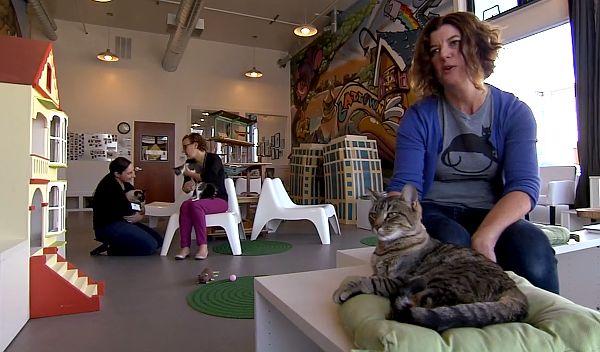
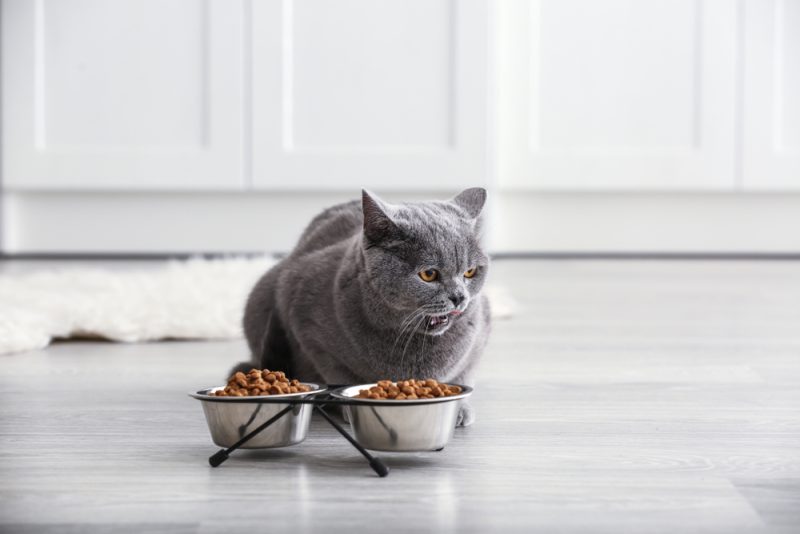
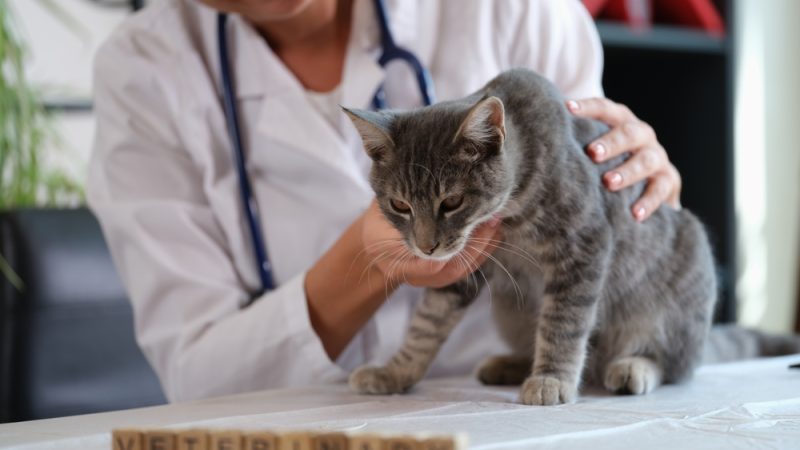
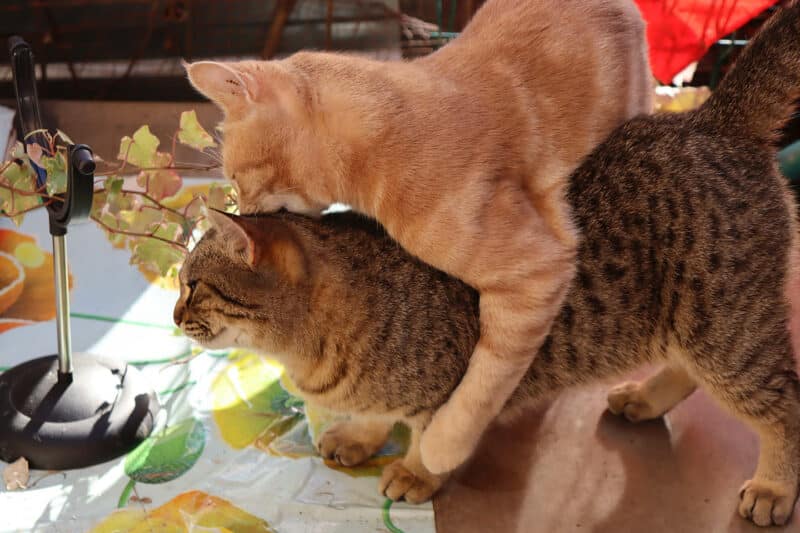
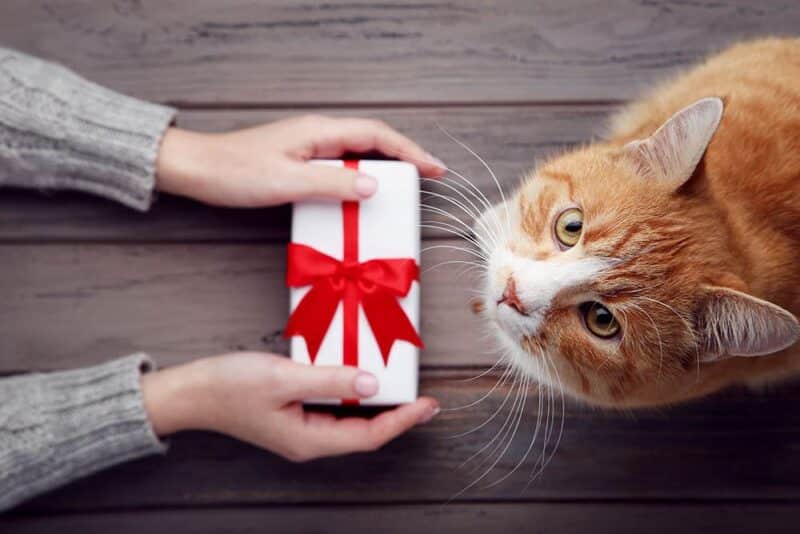
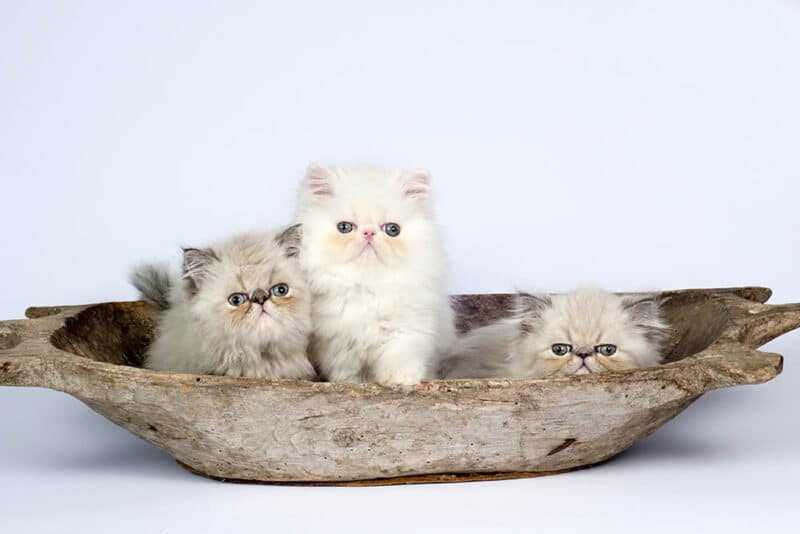
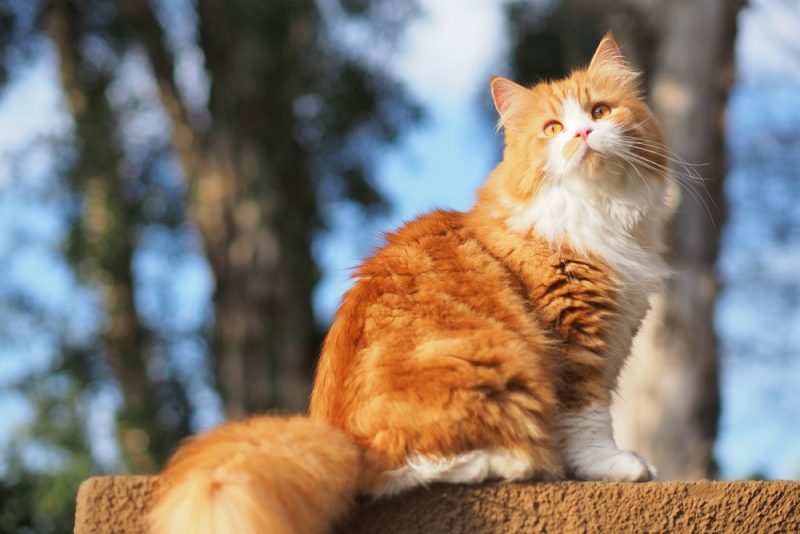
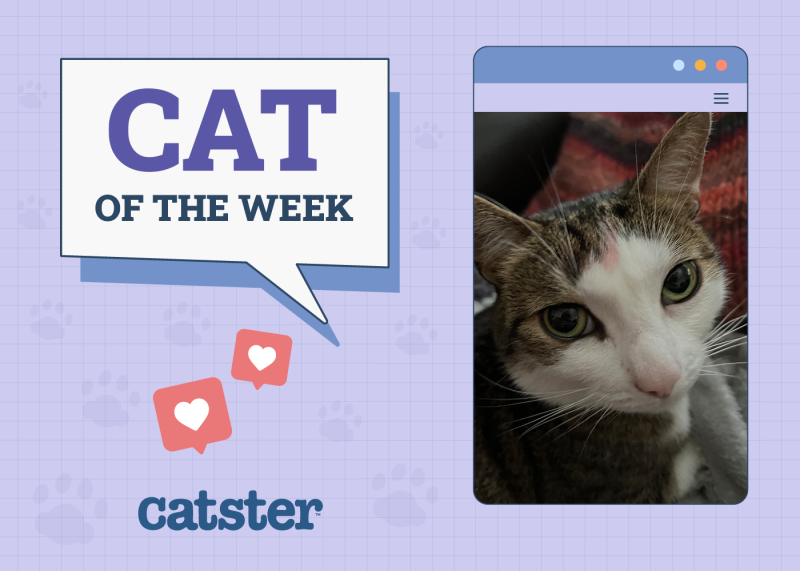
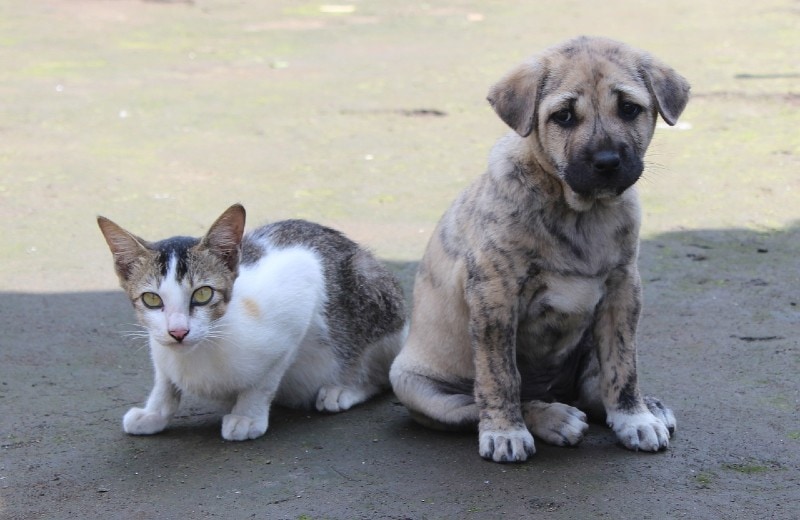
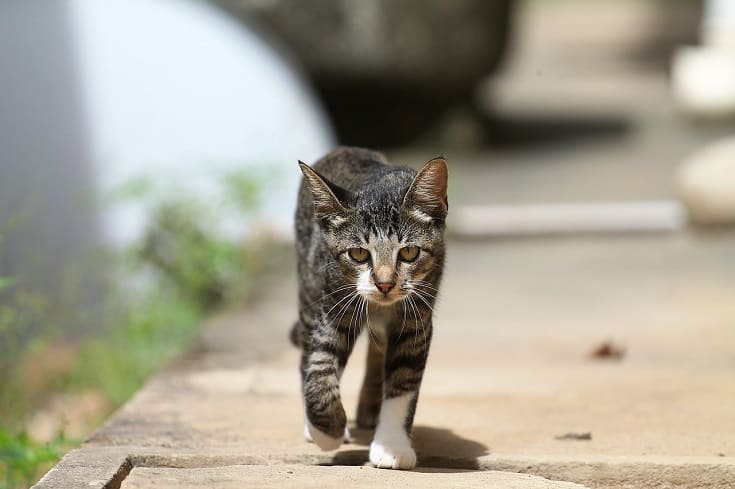
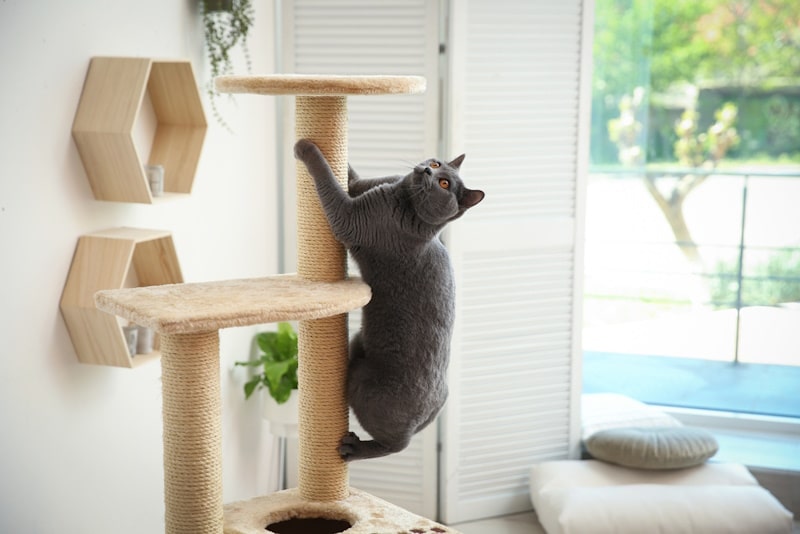
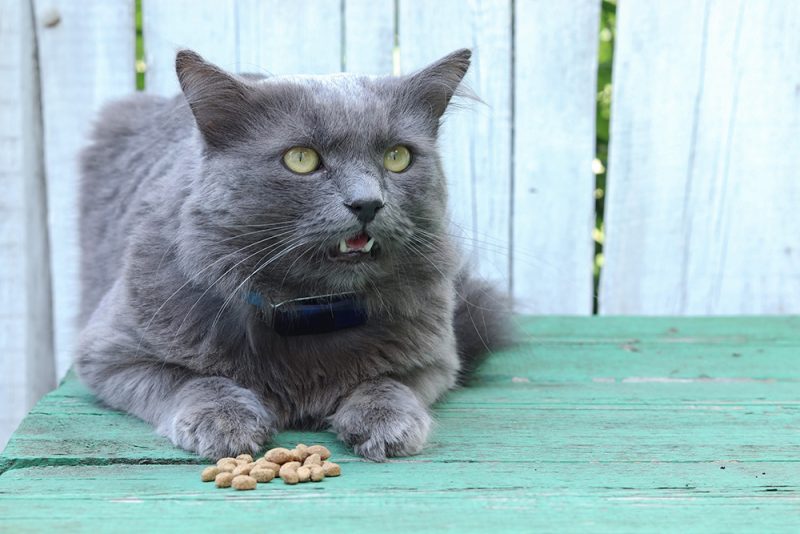
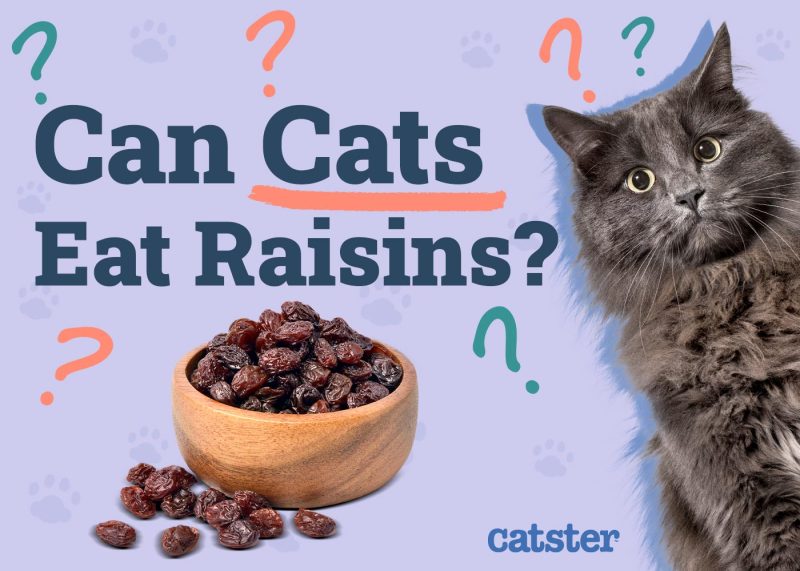
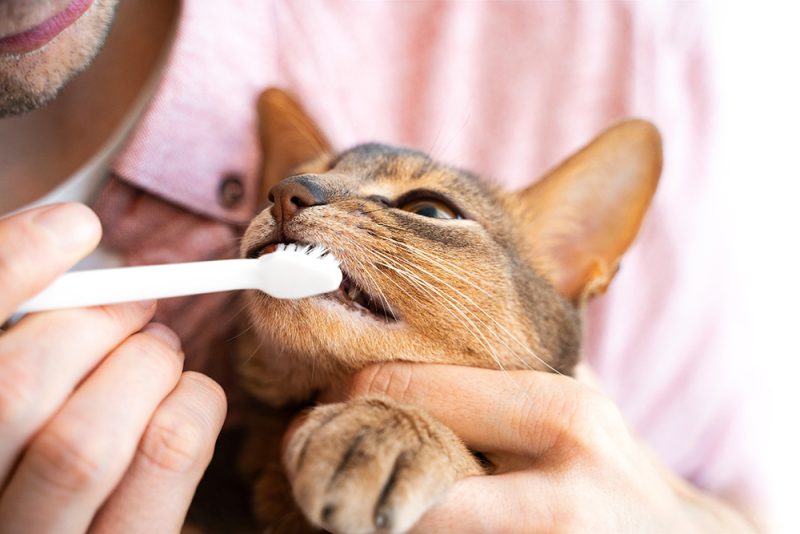
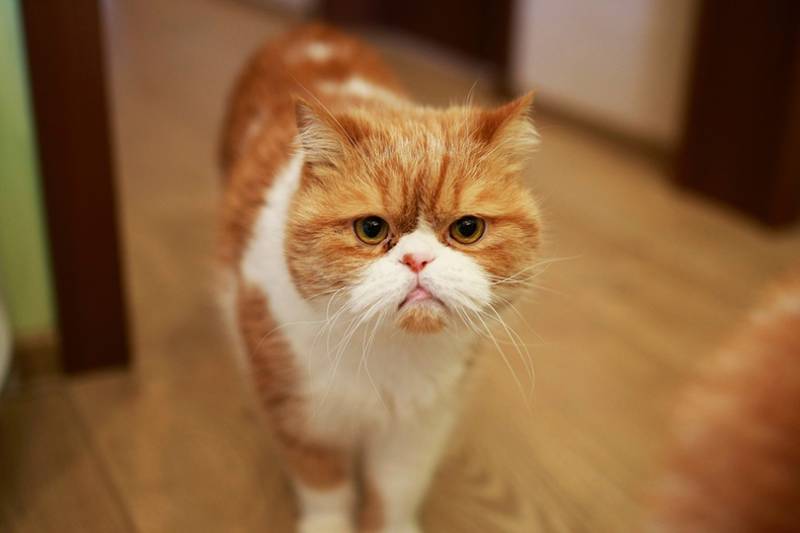




4 Responses
Apologies
No need to apologize, we are here to guide our readers, and we are always happy to hear from them ????
Dear Dr. Paola
I have a 6 years spayed cat vet put her on Hills wet food diet prescription however it expired I was unable financially to continue
Buying it therefore vet refused to renew prescription I bought grain free dry food n
Feed her Fancy Feast 1/4 cup morning 1/4
cup evening little bit of dry food.
Can you please advise Thank you
Hi Irene. Thank you for reading. Dr. Paola welcomes your questions through this link: https://www.catster.com/ask-dr-paola/. While this section is for comments, please submit your questions via the provided link. Your understanding and participation are appreciated. We anticipate Dr. Paola will offer helpful advice.